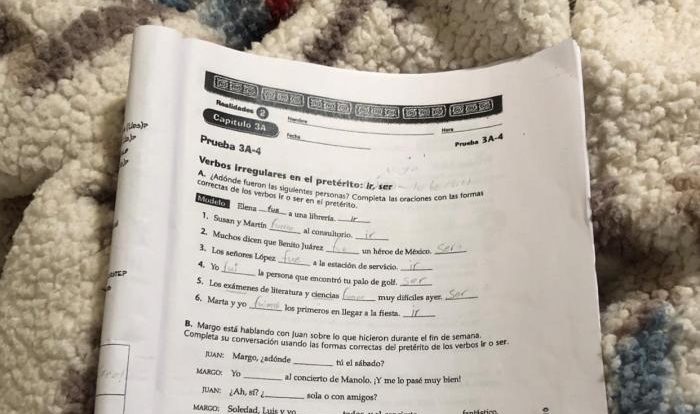Building vocabulary skills fifth edition answer key – Embark on an extraordinary journey to expand your vocabulary with the Building Vocabulary Skills: Fifth Edition Answer Key. This comprehensive guide unlocks the secrets to mastering new words, empowering you to communicate with precision and eloquence.
Delve into the intricacies of word structure, explore the fascinating origins of words, and engage in interactive activities that bring language to life. With expert strategies and practical exercises, this guide transforms vocabulary building into an enriching and rewarding experience.
Vocabulary Building Techniques
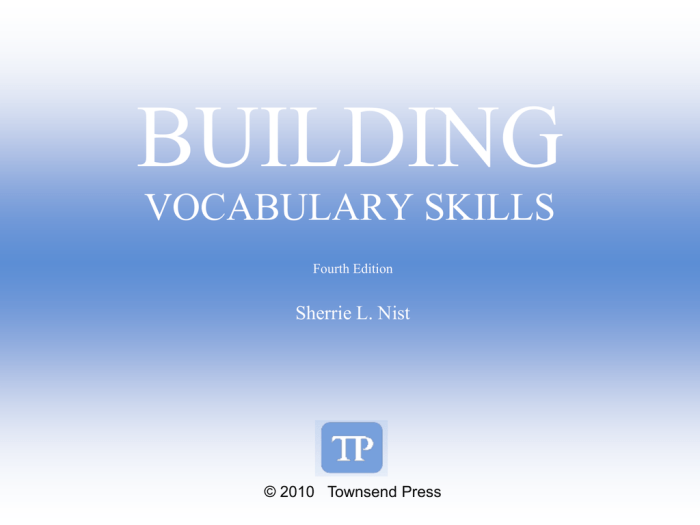
Expanding vocabulary is crucial for effective communication and critical thinking. Here are some proven techniques:
1. Reading widely and actively: Engage with diverse texts, including books, articles, and online content. Pay attention to unfamiliar words and make a note of them.
2. Contextual learning: Encounter new words in meaningful contexts. Read, listen, and participate in conversations where new vocabulary is used.
3. Spaced repetition: Review new words at increasing intervals (e.g., 1 day, 1 week, 1 month) to enhance retention.
4. Word mapping: Create visual representations of words, linking them to their definitions, synonyms, and examples.
5. Active recall: Regularly test yourself on new words to reinforce memory and identify areas for improvement.
Word Study: Building Vocabulary Skills Fifth Edition Answer Key
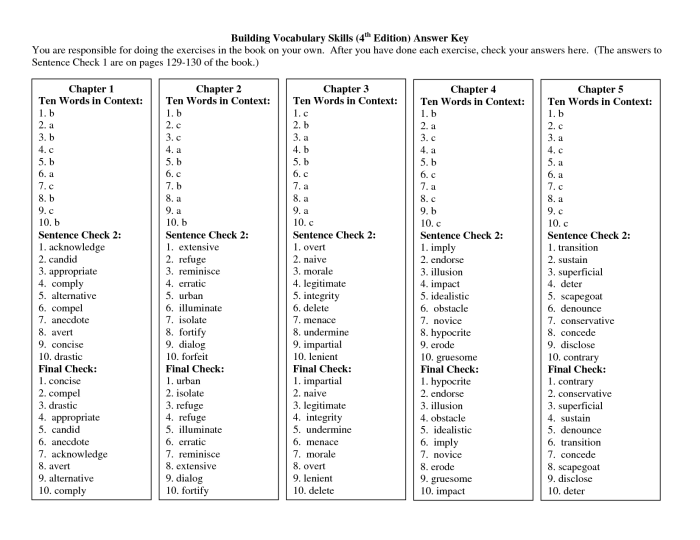
Analyzing word structure and etymology enhances vocabulary comprehension:
Prefixes and Suffixes, Building vocabulary skills fifth edition answer key
Prefixes (e.g., re-, un-, pre-) and suffixes (e.g., -ment, -ity, -able) alter word meaning and part of speech.
Root Words
Identifying root words (e.g., dict-, log-, phon-) provides insights into word origins and relationships.
Etymology
Understanding word etymology (e.g., Latin, Greek, French) deepens vocabulary knowledge and fosters connections between words.
Dictionaries and Thesauruses
Dictionaries provide definitions and usage examples, while thesauruses offer synonyms and antonyms, expanding vocabulary.
Contextual Learning
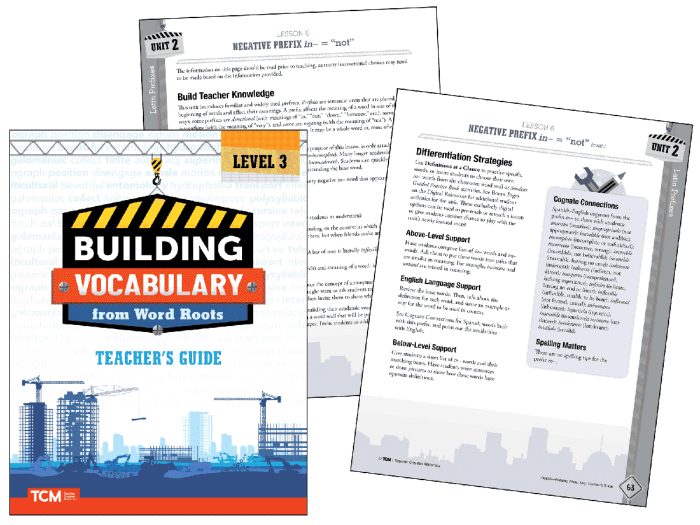
Encouraging students to encounter new words in meaningful contexts:
Reading Activities
Assign texts with rich vocabulary and facilitate discussions to explore word usage and meaning.
Writing Activities
Encourage students to incorporate new words into their writing, providing feedback on vocabulary selection and usage.
Speaking Activities
Engage students in discussions, presentations, and role-plays that require the use of new vocabulary.
Games and Puzzles
Incorporate vocabulary-building games, such as crossword puzzles, word searches, and charades, to make learning fun and engaging.
Assessment and Evaluation
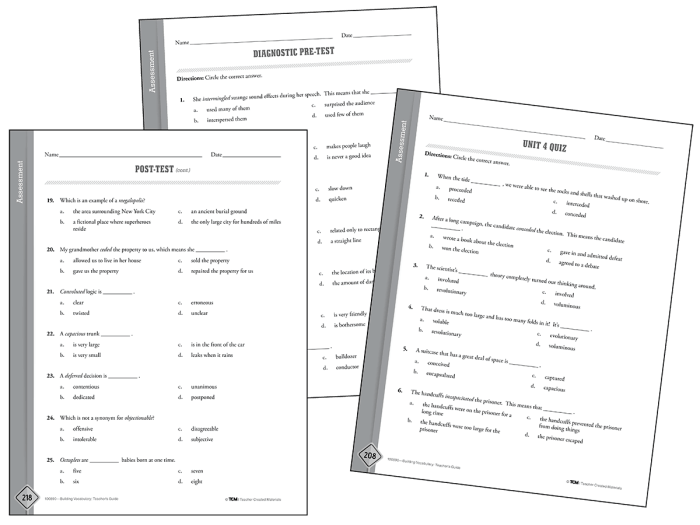
Effective methods for assessing vocabulary skills:
1. Multiple-choice tests: Test recognition and comprehension of new words.
2. Cloze tests: Fill-in-the-blank exercises to assess vocabulary knowledge in context.
3. Short answer questions: Require students to define or explain words in their own words.
4. Vocabulary portfolios: Collect student work that demonstrates vocabulary acquisition and usage.
5. Self-assessment: Encourage students to reflect on their vocabulary progress and identify areas for improvement.
Helpful Answers
What are the key strategies for expanding vocabulary?
Effective vocabulary building techniques include reading widely, using flashcards, engaging in word games, and immersing oneself in new linguistic environments.
How can I improve my memorization of new words?
To enhance memorization, employ spaced repetition, associate new words with personal experiences, and engage in active recall through writing or speaking.
What is the significance of context in vocabulary acquisition?
Context provides essential clues about the meaning and usage of words. By encountering words in meaningful contexts, learners can develop a deeper understanding and retain them more effectively.
